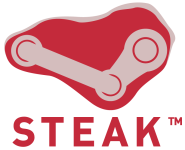Triton’s Lessons and Legacy

Triton’s demise has been a particularly untimely one. Its plug was unexpectedly pulled during Steam’s strongest single week of growth–perhaps not in coincidence. Its closure has been every digital distribution paranoiac’s nightmare come true, a case study for the worst-case scenario in fact, and as such is of great interest to anyone with a stake or interest in any connected digital distribution scheme.
Let’s be clear on one thing: the collapse itself has been truly disastrous. DiStream shut the group down and laid off its employees–ostensibly as part of a “re-organisation” effort–without warning even 3D Realms or Human Head, the two groups solely responsible for whatever success the system enjoyed. DiStream have since then made no move (that anyone is aware of) to clear up after their actions. But for all the farce of the collapse itself, post-support both exists and is progressing smoothly at the hands of Triton’s former lead architect Royal O’Brien, with whom I spoke.
This post will examine both aspects, collapse and post-collapse support, and then contrast them against Steam.
The Closure
What led to Triton’s collapse? A direct answer is hard to come by. DiStream are incommunicado and as far as O’Brien is concerned things had never been better when it all ended. “[Triton] was at its peak of its growth”, he says; “[while] I can’t disclose the number of units as that information is confidential, the normal take rate is about 1-1.5% of your traffic and Triton managed to get 4-4.5%.”
A financial success, to the best of our knowledge, and with O’Brien’s citation of a “97% purchase to return / problem rate” a technological success also. So what went wrong?
O’Brien’s answer is a coy one, but by being so revealing, too. “You never sit and point fingers at people in an organization, it’s just bad news to do that”, he tells me. “People make decisions based on what they understand at the time”.
It’s hard not to pick up overtones of miscommunication, or even internal strife, from his phrasing. We’ll probably never hear about the events and conversations that led to Triton being taken offline, and quite rightly too: however, we can take note of possible influences from the public sphere.
- Triton was shut down just as Steam was firmly cementing itself as an online publisher warehouse. Given the hints toward human perception or error being a cause, this cannot be discarded as an influence.
- Only one notable game was offered, and it was neither one of any incredible magnitude, nor did it propel awareness of Triton to retail levels as Half-Life 2 did Steam.
- Both the Triton client and website were clunky and confusing for new users.
- Steam’s mere existence surely influenced prospective customers’ trust in and feelings toward DiStream’s start-up operation.
Yet for all this speculation the cause, unless an edge case, isn’t the most important factor of recent events. What really matters is how its fallout was, is being in fact, handled.
The Clean-up
What is being done to support Triton’s customers and clients? Quite a lot, actually. Unlike the sorry story of the system’s closure, post-collapse support, led by O’Brien, is an exercise in altruism.
There are two programmes underway. First, despite being made redundant, O’Brien has requested and been granted permission to create a ‘final patch’ for Triton’s games. An initial release targeted at the Triton client will remove online dependency (allowing “play, backup and restore” operations), and be followed up by a more complex update that removes Triton’s code from the individual games.
While it could be argued that the code should have been produced beforehand, it’s unquestionably commendable that the effort is being put in given the circumstances, and what’s more with no hope of any return on O’Brien’s part. He backs his actions with rhetoric: “I believe in [digital distribution]”, he emphasises. “One way or another, I’m going to do everything I can to strengthen its presence in the marketplace … It’s all or nothing, and nothing is not an option for me”.
Personally, I can’t see anyone saying that should EA Downloader go offline. O’Brien is also offering proactive support to all of Triton’s customers–surely not an easy task, but fortunately one where “a lot” of the responses are supportive and upbeat.
The second programme involves a boxed copy of Prey being delivered to everyone who purchased the game through Triton. It’s a costly venture, organised by the game’s publishers 2K Games but most likely funded by producers 3D Realms, and like O’Brien’s patch and support efforts a praiseworthy one. However, only Prey is covered: those who purchased any other Triton titles will have to rely on the forthcoming patch.
The Cremation
There is one aspect of Triton’s story left. The users are being catered for, but Triton itself–as a software program and web service–is now in disuse. It has been suggested that the current owners of the Triton codebase look into licensing it. I put the prospect to O’Brien, and his response was immediate. “It’s an excellent idea, and one that is quite viable. Generation 1 [of the Triton code] is owned by DiStream. I can’t talk about generation 2 right now, but it’s something that has been coming along very well”.
“It’s all or nothing, and nothing is not an option for me”
As anyone who used Triton will agree, the streaming technology was indeed powerful and efficient, and if anything like as easy to implement as has been claimed surely an incredibly valuable asset. I’ll try to keep track of what happens, but with DiStream in chaos news of license agreements may be hard to track down.
In terms of Steam, Triton’s smooth closure is a strong confidence booster. Valve have already produced code to disable authentication on clients, and while the chances of retail copies of independent games like Red Orchestra being delivered to each purchaser are slim, the lack of other major obstacles in Triton’s experience is reassuring.
There are some differences: online games that fully embrace Steam (i.e. are developed with it in mind) would lose their authentication systems, the old problems of patches would resurface, and someone somewhere would need to host the cache files for those who did not have all of their Steam games downloaded at the moment of disconnect. None of these can readily be avoided, but as Triton has demonstrated, all could probably be smoothed through support should the time come to ease in a new order.
Steam Retrospective
But of course, Steam isn’t going anywhere. “I think Steam was able to monopolize on having moved the previous games that were already popular to the platform for free first”, O’Brien muses on its success. It’s certainly true that Valve’s transitioning of their existing GoldSrc games and communities to Steam helped it establish itself, although as long-time users will fondly (or not-so-fondly) remember, not without alarming growing pains.
“Then up-sell the new game with a little ‘controversial press'”, O’Brien continues in reference to Valve’s highly-publicised dispute with former publishers Vivendi, “and you have yourself a market boom”.
That, I point out, is a little below the belt. “People knew about Steam, but many many more learned a lot more about it when things [the lawsuit] started to brew” he responds; “I can’t say that it was intentional, but if it were, it would be damn ingenious. There is no such thing as bad press”. A little like that other story, the 2003 source code leak? “I think that event just flat out sucked” O’Brien says, now sympathising. “People who steal code or leak intellectual property should be…well, I’m going to leave that to your imagination.”
Despite his words, there aren’t any hard feelings toward Valve from this quarter. “Steam and any others in the marketspace are helping get digital distribution into the real marketplace and into people’s minds”, he says, taking a wider and wiser view, “so as a result, any competitor to the market only strengthens that market”.
“I have spent so much time with developers, publishers, portals, and retail that I have the angles of where each are coming from, and there is a lot to work with for each of those markets. They can all make a play and do very well. Hands down.”
Victory pulled from the jaws of defeat, on the merits of those with true belief in digital distribution and gaming’s future. It doesn’t get much more poetic than that.




8 Responses to this post:
Comments
FrostedBitesCereal Says:
It always sucks when a company dies…when an idea dies…=(
I still remember when Troika Games fell….was a sad day…=(
Film11 Says:
Good interview there Tom.
Also, give that man (O’Brien) a medal. His efforts to reimburse the former users of Triton are formidable. 3DRealms and 2K Games also should be congratulated in helping with the process of sending out boxed copies of Prey.
Alex Says:
It’s also interesting that Prey publisher 2k Games is now pushing a bunch of Sid Meyer’s games onto Steam.
Let’s just hope for the Steam CivIV users that they receive their patches faster than the ones who bought the game through Direct2Drive.
toto952 Says:
Directly from the Steam Subscriber Agreement
Sorry, I only trust legaleses, not promises.
Tom Edwards Says:
Then it’s a miracle you get out of bed every morning. 😉
toto952 Says:
Yeah, okay… I mean when doing business. If you’re not in this case, I have some very interesting offers just for you…
bellaLI! Says:
[url]http://www.steampowered.com/[/url]
1 Trackbacks/Pings
The Steam Review » Blog Archive » Prey arrives on Steam; new Triton company